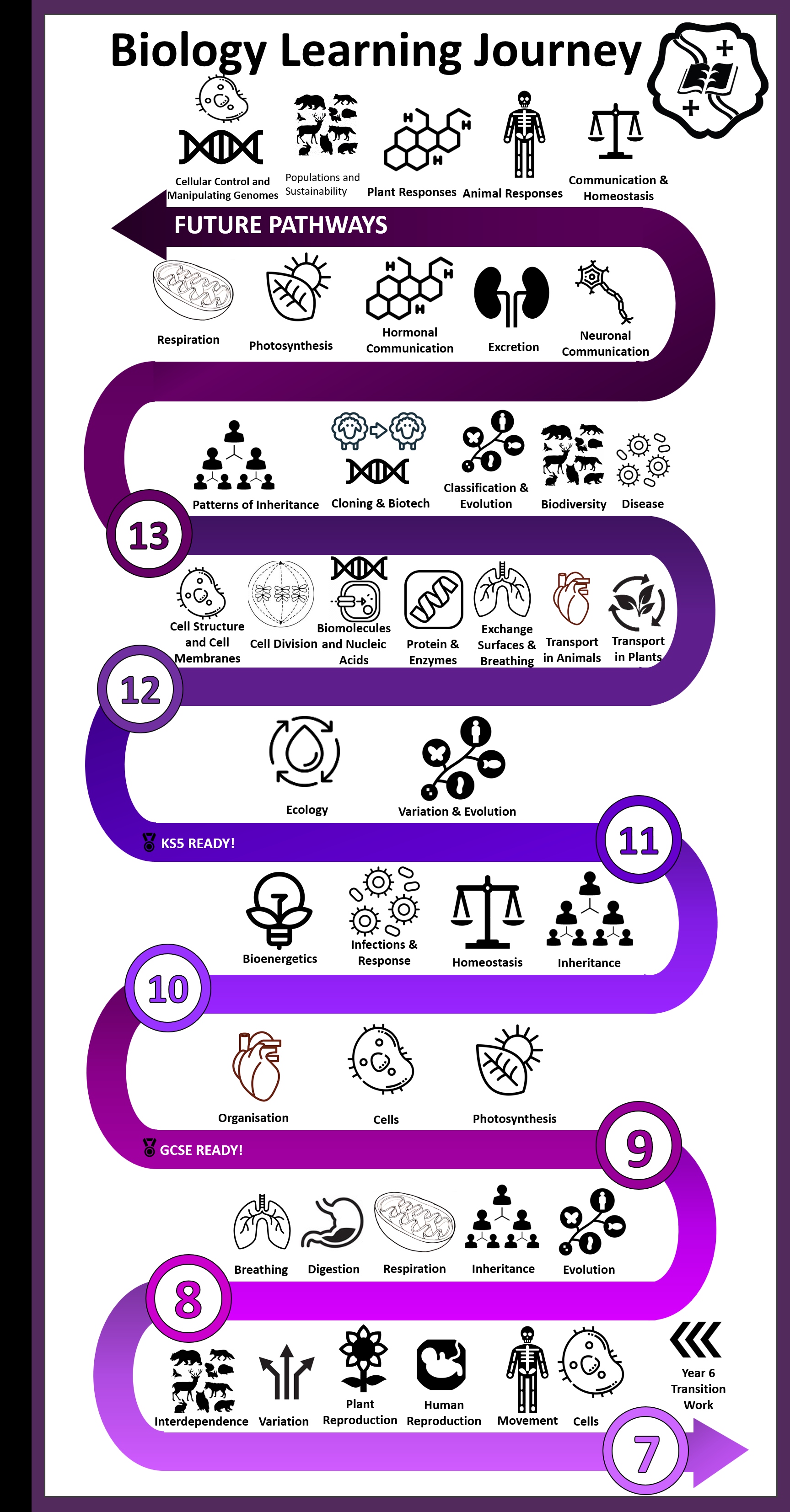This course will develop knowledge
and skills to help understand the living world around us. The course aims to
provide a smooth transition between GCSE and A level with some topics being an
extension of GCSE work. As well as studying in class, there are many
opportunities available for students to enhance their learning and progress.
Students in Year 12 visit the Biomedical Sciences at a University observing an
electron microscope. Students in Year 13 go on a 3 day Ecology field course to
the Purbecks. The content, split into six teaching modules with the Practical
Endorsement to constitute the full A Level.
Educate students to acquire a firm understanding of key scientific principles and detailed technical knowledge, opening pathways to Science and technology vocations.
Students will be able to relate technical knowledge to developments in society (eg climate change/sustainable development) Further develop logical thinking and problem-solving skills and scientific literacy. Facilitate extend practical and organisational skills.
Topic areas taught at KS4 will be revisited in each subject’s A Level course in more breadth and depth. As Science is a spiral curriculum this will building upon previous knowledge, content and skills to enhance a greater comprehension and appreciation of Science.
STEM activities at KS5 include; trips to Higher Education providers (eg biomedical imaging, high voltage lab); opportunities to study subjects in ‘the field’ (eg Biology Field Trips, Chemistry work in Southampton University laboratories); Talks by visitors (eg genetic engineering as part of Science week); aspiring medics and vets programme
Exam Board: OCR
Qualification Title: Biology
Qualification Specification Code: H420
Qualification Webpage: Click here to visit the OCR webpage for the specification.
Standard Sixth Form entry requirements, plus GCSE Science grade 6 or above.

Research, Healthcare, Environmental
Conservation, Education, Employment in Zoos, Aquariums and National Parks,
Veterinary Science, Medicine, Marine Biology, Biotechnology, Agriculture, Food
Science, Forensic Science, Politics and Policy, Environmental Protection,
Pharmacology, Molecular Biology, Genetic Engineering, Physiotherapy and many
more.
Owned by: MDS | Last Published: 20/09/2019 09:53:36 | Next Update: N/A